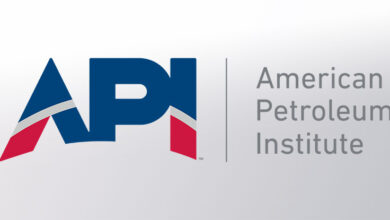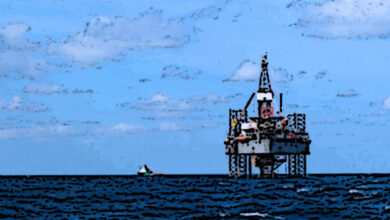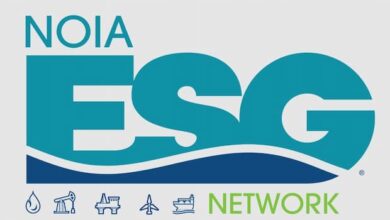IADC applauds EU agreement on offshore oil and gas safety
IADC welcomed an agreement reached on 21 February between the European Parliament and the European Council on a proposal for oil and gas safety regulation.
The agreement was drafted in response to the Macondo incident in the Gulf of Mexico and is expected to be formally approved in the coming months.
Member States’ existing offshore safety protocols were reviewed to draw up the new legislation. The proposed guidelines aim to guarantee the world’s highest safety, health and environmental standards for all operations in the European Union.
IADC worked collaboratively with Oil and Gas UK and OGP to campaign against the European Council’s initial inclination to impose new regulations.
Working with the governments of the United Kingdom, Denmark, The Netherlands and Norway, IADC championed a directive so that each country is responsible for drafting its own regulations.
“After more than two years of struggle, the industry has prevailed in making the argument for a directive and against regulations imposed by Brussels. The distinction sets a platform for individual Member States to develop their own regulations. Had there been a direct mandate for regulations, it would have gone into effect immediately and caused massive disruption in oil and gas operations,” said Brian Petty, IADC executive vice president – government and regulatory affairs. “The agreed-upon legislation will ensure a much better result from a regulatory standpoint without disrupting existing offshore operations in the EU.”
IADC, allies fight threat to OCS leasing program
IADC, along with the API, IPAA and the US Oil & Gas Association, joined together in January to dismiss a challenge by the Center for a Sustainable Economy (CSE) to the Obama Administration’s five-year offshore oil and gas leasing program, arguing that the group does not have standing to bring suit.
The CSE, an environmental advocacy group, argued that the administration based the program on incomplete and flawed economic analysis that ignored key cost-benefit criteria. In particular, the group called attention to ultra-deep-water leases, which it contends increases the risk of another catastrophic spill.
The offshore leasing program, initiated in August last year by the US Department of the Interior (DOI), will hold 15 lease sales in the Gulf of Mexico and Alaskan coastal waters.
In a brief to the DC Circuit, the industry consortium noted that the CSE doesn’t have any members. The brief also stated, “While CSE may have a heartfelt interest in how the government goes about deciding where to engage in offshore oil and gas leasing and may disagree vehemently with how that was done in the 2012-2017 leasing program,” ultimately, there is nothing in the program that will hurt the CSE’s ability to pursue its political agenda.
For its part, the DOI has said it will make parts of the Gulf and Arctic available for new development while adopting an approach that will protect environmentally sensitive areas.
Industry organizations have previously said that the program is too restrictive and cuts off access to oil and gas reserves in West Coast waters and the Atlantic Ocean.
DOI to revise rule on hydraulic fracturing
The DOI is revising the controversial draft rule to regulate hydraulic fracturing that drew much concern and criticism last May.
The announcement on 18 January from the Bureau of Land Management (BLM) did not detail the exact proposed changes but did clarify that the new rule will still require disclosure of the chemicals that companies inject underground, in addition to stringent standards on properly managing wastewater and ensuring wells do not leak.
Oil and gas groups have previously criticized the rule, noting that it would increase the cost of drilling on public lands, complicate the permitting process and duplicate regulations already overseen by the states.
After the announcement was made, Interior Secretary Ken Salazar held a meeting with major oil and gas industry representatives to discuss federal regulatory issues.
Ocean Energy Safety Advisory Committee’s charter renewed
The DOI issued a Notice of Renewal for the Ocean Energy Safety Advisory Committee (OESC) on 6 February. The OESC was formed in early 2011 and was originally given a two-year charter. The group met on 9-10 January in Washington, DC, to review progress-to-date and finalize recommendations to outgoing DOI Secretary Salazar.
The meeting opened with remarks from Bureau of Safety and Environmental Enforcement (BSEE) director James Watson, who focused on the proposed BOP rule, new oil spill response regulations and Arctic drilling.
Secretary Salazar followed by thanking the committee for its work-to-date. He announced that the administration’s Arctic policy had not changed and that they are especially interested in the opportunity that the exploration phase allows for significant scientific research to be conducted.
As the OESC operates in an advisory capacity, no specific action items or plans were established by subcommittees or their members. All recommendations will be presented formally to BSEE for consideration and possible action.
ISO announces new offshore modular drilling rig standard
The International Organization for Standardization (ISO) has approved a new project for development of a standard providing “Specification for offshore modular drilling rigs on fixed platforms.”
The project will be registered on the work program of Technical Committee 67 as NP 18647.
The project was proposed by China, which provided detailed national standards for use in the development of the new standard.
Germany, Qatar, Saudi Arabia and the United Kingdom have nominated experts to serve on the working group to develop the standard.
IADC members interested in participating should contact their national standards body regarding participation.
IADC updates danish energy agency
on industry goals
Jens Hoffmark, IADC regional vice president – European operations, Denmark, met with the new management of the Danish Energy Agency (DEA) on 4 February to highlight IADC’s role within the oil and gas industry.
He pointed out the challenges facing the industry, such as the relatively high number of new rigs entering the market and finding and training personnel to ensure a competent and qualified workforce.
In his meeting with DEA vice president Dorte Nohr Andersen and director Katrine Nielsen, he also answered questions related to the regulation of offshore safety among countries around the North Sea and invited them to actively participate in IADC’s conferences.
Joint Ocean Commission initiative to develop ocean agenda
IADC executive VP of government affairs Brian Petty served as a panel participant for the Joint Ocean Commission Initiative (JOCI) meeting, “Setting the Ocean Agenda for the Administration and Congress,” on 20 February in Washington, DC. Attendees and participants represented both government and industry.
Mr Petty participated in a panel, “Perspectives on ocean and coastal priorities.” He presented IADC’s views on the opportunities and challenges in advancing ocean policy, science and funding.
JOCI will use input from the gathering to develop an ocean agenda, with recommendations for actions that can be carried out over the next two to four years. The agenda will be presented to the Obama Administration and Congress in Spring 2013.




